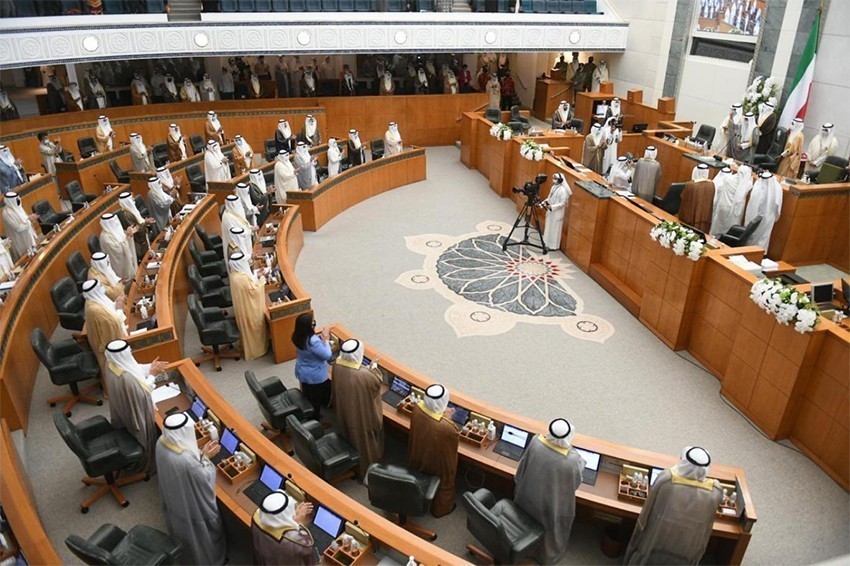12/12/2023
12/12/2023

KUWAIT CITY, Dec 12: During its regular session, the National Assembly deliberated on the initial report from the Financial and Economic Affairs Committee regarding amendments to the Public Tenders Law, specifically the elimination of the local agent requirement. The Finance Committee's rapporteur, Daoud Marafi, stressed the importance of opening markets for public interest, emphasizing that many tenders tend to be the highest priced in the region. Marafi highlighted that abolishing the local agent requirement promotes real competition among investors, allowing foreign companies to establish branches in Kuwait.
Abdul Karim Al-Kandari supported the amendment, citing the failure of the local agent system and its impact on market dynamics. He emphasized that the proposed changes would eliminate the local agent, fostering more competitive pricing and quality. Mubarak Al-Hajraf emphasized the necessity of approving the law, ensuring job opportunities for national workers in foreign companies entering the Kuwaiti market. Other representatives, including Miteb Al-Rathaan and Adel Al-Damkhi, echoed support for the legislative change, viewing it as a victory for freedom of trade and a means of saving public money.
Jinan Bushahri clarified that the entry of foreign investors would be regulated by the Direct Investment Promotion Authority, and while supporting the amendment, she emphasized the importance of maintaining controls. Representatives like Hamdan Al-Azmi emphasized the need for the government's opinion on the matter and highlighted potential conflicts with residency laws. Hamad Al-Madlej stressed the importance of fighting corruption to attract foreign companies.
Osama Al-Shaheen and Abdullah Fahhad expressed optimism about the amendment, foreseeing benefits in terms of competition and pricing. Saud Al-Asfour emphasized the need for a change in the market environment to effectively attract foreign companies. Marzouq Al-Ghanim reminded that previous legislation in 2013 had already paved the way for foreign investors, and Hamad Al-Matar argued that eliminating the local agent would benefit the economy by bringing in foreign companies.
Several representatives, including Abdul Wahab Al-Issa and Muhammad Al-Huwaila, viewed the amendment as part of economic reform, expecting positive impacts on competition, services, and the national economy. Despite discussions about the amendment not entirely abolishing the local agent, representatives like Fayez al-Jumhur and Marzouq Al-Habini stressed its positive implications for large companies entering the market without this requirement. In summary, the National Assembly members engaged in a detailed discussion regarding the amendment, with many expressing support for the removal of the local agent requirement as part of broader economic reforms.


